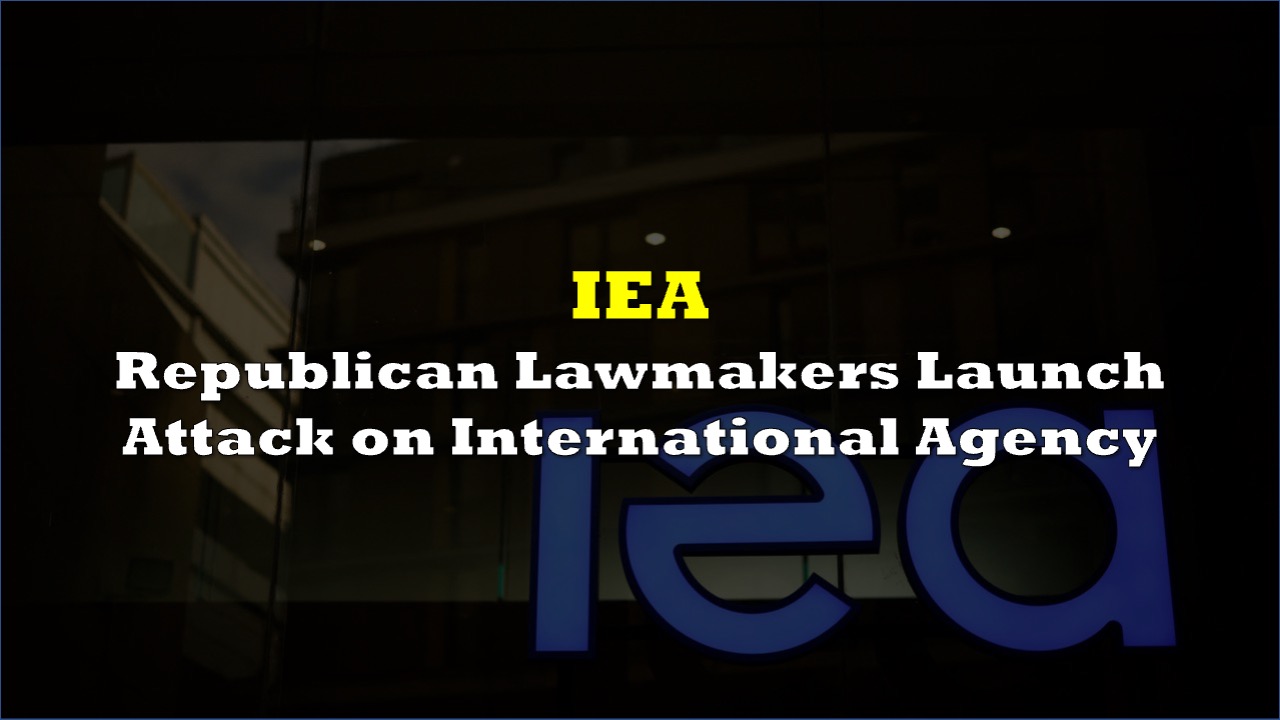US Republican lawmakers have launched a blistering attack on the International Energy Agency (IEA), accusing the organization of becoming an “energy transition cheerleader” and undermining energy security.
The letter, signed by Senator John Barrasso and Representative Cathy McMorris Rodgers, leaders of the Senate and House energy committees respectively, argues that the IEA has been discouraging sufficient investment in oil, natural gas, and coal resources in recent years.
The lawmakers expressed concern that “biased parties are exploiting the IEA’s forecasts and other products to advocate for policies that undermine energy security.”
Oooh boy!
— Tracy (𝒞𝒽𝒾 ) (@chigrl) March 21, 2024
🇺🇲US lawmakers from US Senate Committee on Energy and Natural Resources and the US House Committee on Energy and Commerce send a scathing letter to the IEA >
We would argue that in recent years the IEA has been undermining energy security by discouraging sufficient… https://t.co/QtgSQ8SsTv
Their letter comes amid growing criticism of the IEA’s long-term oil demand forecasts, which suggest that global oil demand could peak as early as 2030, a projection that has drawn ire from OPEC and major oil-producing nations like Saudi Arabia.
IEA’s work has long been the basis cited by policymakers, academics, journalists and civil society groups, as Axios notes.
The lawmakers call on IEA Executive Director Fatih Birol to disclose the funding the agency has received from the United States over the past decade. Sources indicate that Republican lawmakers are considering the prospect of cutting federal funding to the IEA following the outcome of the upcoming US elections, citing dissatisfaction with the agency’s stance on the energy transition and its perceived bias against fossil fuels.
The IEA, established in the aftermath of the 1970s oil crisis, has faced increasing scrutiny from both sides of the energy debate. While oil producers like Saudi Aramco have criticized the agency’s push for a phaseout of fossil fuels, environmental groups and climate activists have argued that the IEA’s projections do not go far enough in addressing the urgency of the climate crisis.
The agency’s $22 million funding boost following the COP26 climate summit, aimed at supporting the transition to clean energy in emerging economies, has also drawn criticism from some quarters.
Information for this story was found via S&P Global, and the sources and companies mentioned. The author has no securities or affiliations related to the organizations discussed. Not a recommendation to buy or sell. Always do additional research and consult a professional before purchasing a security. The author holds no licenses.









